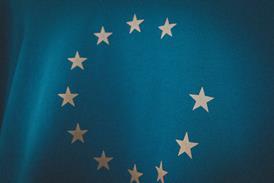The origin of Black Friday was the clearing of dead stock so that the new product, which would reach premium price in the lead up to Christmas present, had room to be displayed. Every product line is meant to sell out, but nothing ever runs that perfectly. Some lines do sell through completely, but the majority have a residue. As supply lines have grown so long (in both physical terms with Asian manufacturing and time-wise as sell-in starts over 12 months before the product delivery), there has been a trend to overproduce as the most important thing is not to be able to satisfy orders – as that risks losing shelf space, which was the all-important measure of having sell-through in retail.
How Black Friday has been interpreted in Europe is an opportunity to shift stock. Sometimes special make-up products are offered in a bid not to ruin the potential for core stock sales in the following months. Still, if this option is used, it is often just in a material end of run variety – mostly, it is core stock that is discounted for a quick sale. In the U.K., crowds fighting in stores over the headline discounted purchases brought an end to the physical sales as the stores put their reputation before the potential footfall. Now it has become a mostly virtual event and has been celebrated by fast fashion companies offering £1 bikinis and £5 dresses (which appear to last longer if they do not get put into a washing machine).
However, the concept has been expanded. Thanksgiving is a Thursday night celebration, and hence the following day marked the start of the promotions. Saturday has become known as Small Business Saturday, where the push is to not shop at a corporate store but to keep the money in the local community by buying from a privately owned shop. Cyber Monday marks the virtual shop while Giving Tuesday is when you donate to worthy causes.
What the outdoor industry has done was initiated by Patagonia’s Don’t Buy This Jacket advert a decade ago – where they encouraged people to stand against mass consumption. Other brands have closed their shops and given their staff a day to either explore or assist with local charitable causes. When an objectionable U.S. president took office, the Ventura brand said they would donate the profits from their virtual sales on that day to a fighting fund but messed the figures and actually donated the value of every sale they made that day. On the back of this, the European Outdoor Conservation Association started focusing on an enlarged outdoor contribution by getting their members to have a specific sale on the day and donating all the revenue to be given towards further environmental projects they support.
Such values represent the outdoor industry in the best light – which is required to both demonstrate that those associated with the textile industry are keen to do good (especially at a time when the reputation of clothing has been wrongly labeled as the second most polluting activity on the planet), but also to keen to lead the way for the other side of apparel retailing to do better practice.
There are times when the leaders in the Outdoor Industry should be congratulated for doing good (and being members of EOCA!).
Photo: © iStock










